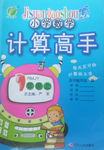题目内容
【题目】假设你是晨光中学学生Li Jin。看到校园网英文讨论区一位同学发的帖子,谈到复课复学后自己的学习情况。请你用英语给他回帖。
After a super long staycation, I returned to school on May. Studying at home is not as efficient as at school. I have been feeling nervous about the school life and the intense stress from study. I think I am totally left behind. I should have worked hard, but sometimes I just can’t concentrate on what the teacher is saying in the class…
John
1. 表示理解并鼓励他…
2. 给他提出相关建议(如保持良好心态;认真上好每一节课;向老师同学寻求帮助等)
3. 期待他能够取得进步。
注意:1. 词数不少于100;
2. 可以适当增加细节,以使行文连贯。
John,
It’s very normal that you feel stressed and nervous after such a long staycation.
____________________________________________________________________________________________________________________________________________________________________________________________________________________________________________________________________________________________________________________________________________________________________
Li Jin
【答案】John
It’s very normal that you feel stressed and nervous after such a long staycation. I had the same feelings because many changes have been made not only to our schedules but also to our mindset. So try to face it and keep positive.
Here I want to give you some pieces of advice.
First, you should keep a good mood and calm yourself, which helps to lower your stress level. Next, take every lesson seriously. At present, learning is affected but everyone is in the same situation. Don’t think too much , JUST DO IT. You should set up your daily tasks, and improve your concentration by practice. Finally, if you have any problem, try to turn to your classmates and teachers when you get anxious.
I hope it’ll help you and expect your improvement.
Li Jin
【解析】
本篇书面表达属于应用文,要求考生写一封帖子到校园网上,表达对一位复课后压力很大的同学的理解和支持。
第一步:审题
体裁:应用文
时态:根据提示,时态将用到一般过去时、现在完成时、一般现在时和一般将来时。
结构:总分法
总分法指把主题句作为总说,把支持句作为分说,并以这种方式安排所写内容。
要求:1.表达对该同学的理解并进行鼓励; 2. 给他提出相关建议(如保持良好心态;认真上好每一节课;向老师同学寻求帮助等);3. 期待他能够取得进步。
第二步:列提纲 (重点词组和句式)
It’s very normal that…、the same feelings、give sb some pieces of advice、keep a good mood、take every lesson seriously、turn to。
第三步:连词成句
1. It’s very normal that you feel stressed and nervous after such a long staycation.
2. I had the same feelings.
3. Here I want to give you some pieces of advice.
4. You should keep a good mood and calm yourself.
5. You should take every lesson seriously.
6. You should try to turn to your classmates and teachers when you get anxious.
第四步:连句成篇(句与句之间使用衔接词)
1.表文章结构顺序:First of all, Firstly/First, Secondly/Second… And then, Finally, In the end, At last
2.表并列补充关系:What is more, Besides, Moreover, Furthermore, In addition As well as, not only…but (also), including,
3.表转折对比关系:However, On the contrary, but, Although+clause(从句), In spite of+n/doing,On the one hand…,On the other hand… Some…,while others…,as for, so…that…
4.表因果关系:Because, As, So, Thus, Therefore, As a result
连句成文,使用恰当的连词进行句子之间的衔接与过渡。
第五步:润色修改:运用主从复合句给部分句子添加适当细节,使行文更连贯;对用词重复的句子进行句式转换,使行文更简洁。

 计算高手系列答案
计算高手系列答案